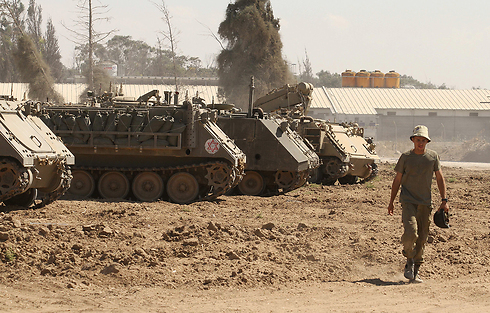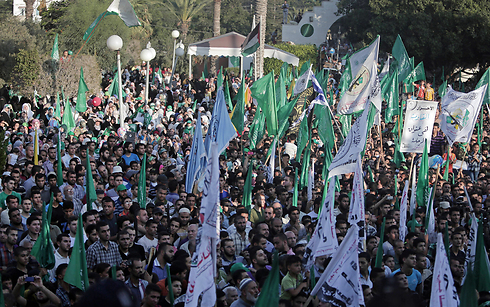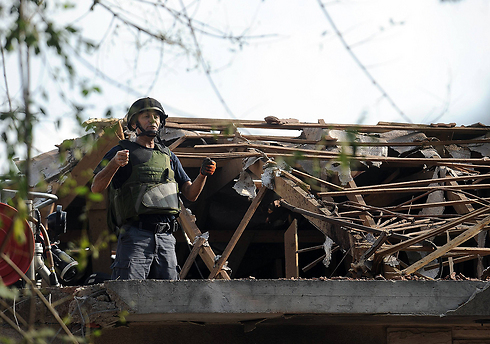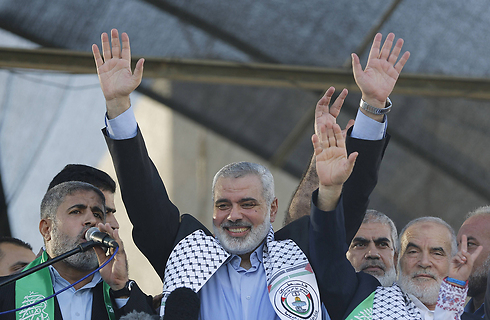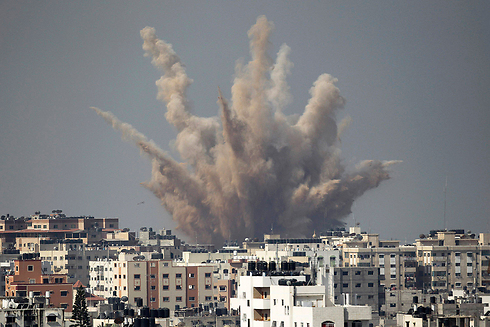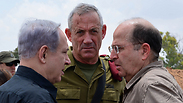
Gaza ceasefire is too little, too late
Analysis: Operation Protective Edge has left behind several poisoned chalices: Israelis have discovered they have no leadership, no political trust, a tenuous grip on coexistence and democracy, and a downturn in relations with the US.
It isn't always the case that all's well that ends well. The fear is that instead of paving the way for removing the threat from Gaza, we are rather paving the way for the next round, either in Lebanon or in Gaza. But this is what our government has bestowed upon us, and we will have to live with it.
The final misstep was the failure to bring about a Security Council resolution before the ceasefire agreement. The draft resolution formulated in conjunction with the Americans focused on the reality in Gaza on the day after. It included a call for the demilitarization of Gaza and would have improved Israel's political situation, making it difficult for Turkey and Qatar to continue their support for Hamas.
But Netanyahu balked at the political price, and by the time he was persuaded to go with, it was too late. If there is a Security Council resolution now, it will be less comfortable for Israel, and more suited to the fit of Mahmoud Abbas.
Abbas is the real winner of this war. Hamas given may have been given glory on the Palestinian street, but he and his Palestinian Authority have been given control over the process of rebuilding Gaza, a process that will involve channeling billions, as well as not inconsiderable corruption. Abbas has today won the status of positive leader and legitimate partner not only in the eyes of the Arab world and the international community, but also in the eyes of the Israeli public opinion. Perhaps Operation Protective Edge is the silver salver on which the State of Palestine is established.
Previous clashes with terrorist organizations ended with public international support for Israel. This was the case at the end of the Second Lebanon War, with Security Council resolution 1701, and at the end of Operation Cast Lead, with demonstrative visits to Israel by European foreign ministers.
Both of these events occurred during Ehud Olmert's tenure as prime minister. This time, the Israeli government has not initiated any steps: Foreign Minister Avigdor Lieberman is focused on other issues, and Prime Minister Benjamin Netanyahu has not presented any initiative of his own.
What was achieved in Cairo is Pillar of Defense 2. It could have been considered as an achievement had it happened two weeks after the operation, when the price we paid was not so high. It could have been tolerated after a month, but after 50 days you can only feel regret for what has happened, and hope for better in the future.
Hamas political leader Khaled Mashal was reluctant to agree to the Cairo arrangement, and the assumption in Israel is that Hamas leaders in Gaza forced him to accept, due to the cumulative stress and the pressure from the Gazan population.
Israelis have discovered some uncomfortable truths during this period. First, despite the absolute operational freedom of the IDF in the air and at sea, despite the tremendous firepower on the ground, despite the almost hermetic protection from rocket fire, Israel still cannot defeat a terrorist organization that is relatively small in size and isolated in the Arab world.
Secondly, wars, even limited ones, demand a price that the Israeli public had not expected to pay and were not willing to pay. The price this time was paid primarily in the blood of Israeli warriors; the blood of civilians in the south, civilians abandoned by the government throughout the operation; disruptions to life in the center of the country and the loss of tens of billions to the economy; defense costs; physical damage; and a downturn in economic activity.
Thirdly, Israel discovered that they have no government. On the eve of the operation, the political echelon realized that if the stranglehold on Gaza continued, Hamas would start firing. If it had acted, the military conflict might have been avoided. In practice, it was the military that conducted this campaign.
The IDF top brass did not ask for the job itself. Quite the reverse, in fact, and entered into the conflict with a lack of enthusiasm for the vacuum created above it, at the political level.
For Netanyahu it was the first real military conflict of all his periods of tenure as prime minister. To a great extent, this was his big test. Israelis expected a leader, a statesman who knew what he wanted to achieve, a decision-maker who would hold a sincere dialogue with the public. What they got was a slick spokesman, and very little more. Looking back over the 50 days of the operation, one can see numerous wordy discussions, but will find it hard to spot significant decision by Netanyahu, or a single move for which he can be credited.
He couldn’t muster the courage to tell the Israeli public: "My fellow citizens, I am sorry. For decades I have preached to you that there is only one way to handle a terrorist organization – and that is to eliminate it. We must not negotiate, we must not compromise. I was wrong. And therefore I am now, under fire, holding close talks with Hamas and striving to reach an agreement. I have no other suggestions." Such a speech would, of course, never happen.
Not only was there no Israeli leadership – there was no transparency or honesty either. There were only fiery speeches about the animals in human form in Gaza, even as he negotiated with those same beasts. At his side was Defense Minister Moshe Ya'alon, tight-lipped and mute. In a few years, one of the questions for trivia quizzes will be, "Who was defense minister during Operation Protective Edge?" And no one will be able to guess correctly, not for even for a million shekels.
And it is not only Israel's citizens who have discovered that they have no leadership, the Cabinet ministers have too. There has been friction in the upper echelons during every military confrontation, but the worst thing that stood out this time was that the rules of the game were broken. Cabinet ministers lost the last remnants of their faith in the prime minister, and the prime minister lost the last of his willingness to share details of what was happening. Ministers were informed of Israel's agreement to the ceasefire by telephone - a humiliating end to a shameful process.
The fourth uncomfortable truth that Israelis discovered during the operation was that it is more and more difficult for Jews and Arabs to enjoy a shared existence. The Jews became radicalized and the Arabs became radicalized. Racist expressions became legitimate. Threats on the lives of artists and journalists became routine. This perilous reality, which endangers the democratic discourse and endangers domestic coexistence, is one of the poisoned chalices that the Gaza conflict leaves behind.
And it leaves in its wake another trail: the bitter aftertaste it has created in Israel's relationship with the United States. Israel paid for the bombing of Gaza with stormy protests in Europe and a worrying expansion in the international boycott. This was expected, more or less. And while an investigation by the UN's anti-Israel Human Rights Council was inevitable, the row with the US government was utterly unnecessary.
Under the terms of the ceasefire agreement, Israel and the Palestinians are supposed to return to the negotiating table within one month. This was one of the perks received by Khaled Mashal, in exchange for his agreement to abandon his demand for a limited month-long ceasefire. The discussions on the reconstruction of Gaza will be held on the eve of the Jewish high holidays.
For the Israelis, this is extremely inconvenient timing. Let's see Israelis make plans for the holiday, with Hamas threatening to renew its fire.










